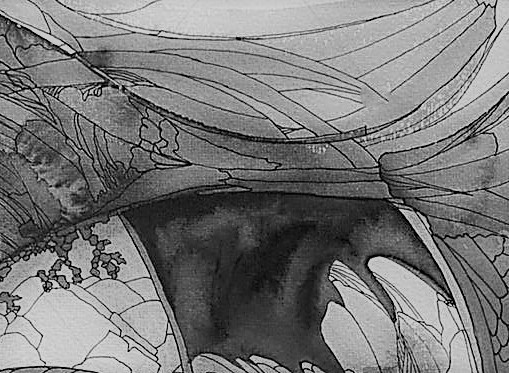Harry Bregazzi is a PhD student in Human Geography at the University of Bristol. His research is focused on peace as a geographical concept, and how peaceful relations are constituted through different socio-spatial contexts.
Luce Irigaray: How to Give Birth to a New Human Being? Day I
17 Aug 2017
Philosopher Luce Irigaray leads two days of public workshops and talks with researchers working on her thought, with a keynote lecture by Irigaray concluding the second day. Somewhat echoing In formation’s drive to promote new ideas and allow multiple perspectives to co-exist, since 2003 Irigaray has worked outside of conventional academic structures to draw together a revolving community of thinkers from diverse fields in an annual seminar and resulting publications and meetings. Researchers from the disciplines of philosophy, gender studies, religious studies, art and literature, have so been gathered to develop their thought through sharing and exchange.
For the ICA, Irigaray presents an open seminar for the first time, inviting Harry Bregazzi, Jennifer Carter, Ciara Merrick, Elspeth Mitchell, Judith Rifeser and Andrea Wheeler to join her in leading How to Give Birth to a New Human Being? The seminar spans two days, and invites audiences to attend and participate in two different areas of exploration: Culture that Favours Touch (Day I) and Towards a Political Culture Respectful of Life, Desire and Difference (Day 2).
The problems and situations to which we face today call for more than mere reforms inside the same cultural horizon. It is the foundation of culture itself which has to be changed. And what is at stake is the urgency of a rebirth of the human being itself. We must thus return to the origin of our cultural tradition and wonder about its lacks in order to start to become again and in order to be able to correspond with what is henceforth required from us.
In these two days at the ICA, with a concern about formation, we will question and inquire about the privilege of sight over touch and the necessity of a cultivation of touch for our human development, beginning with that of children and adolescents. We will also make proposals concerning a politics which no longer focuses on having: money, goods, properties et cetera – but takes into consideration our being, that is, cares about our life, our desire and the difference(s) between us. - Luce Irigaray, July 2017
Day I Programme: A Culture Favouring Touch
About the participants
-
Harry Bregazzi
-
Jennifer Carter
Jennifer Carter is a Doctoral Candidate in Philosophy at Stony Brook University, New York. Her work is in 20th and 21st century French and German philosophy, especially Luce Irigaray, phenomenology, and the philosophy of touch. She is interested in the ways carnal subjects develop and relate to one another. Her dissertation is titled Luce Irigaray and the Fecundity of the Caress.
-
Luce Irigaray
After Speculum, her PhD devoted to the place of woman in history of philosophy, Luce Irigaray worked on the elaboration of a subjectivity in the feminine and means to relate in difference, beginning with the most elemental and universal difference, this between the sexes. She has written more than 30 books translated into various languages, the last being To Be Born. She has held a seminar for PhD researchers working on her thought for the last 14 years. Two of her books of particular relevance for this seminar are Luce Irigaray: Teaching (edited with Mary Green) and Building a New World (edited with Michael Marder).
-
Ciara Merrick
Ciara Merrick is a PhD candidate in Human Geography at the University of Bristol. Her research is focused on spaces of encounter in post-conflict Northern Ireland. Interested in engaging with difference and the body, she is exploring how such spaces are animating an embodied peace that transcends traditional identity politics and their territorial manifestation.
-
Elspeth Mitchell
Elspeth Mitchell is a PhD researcher at the School of Fine Art, History of Art and Cultural Studies, University of Leeds, exploring the figure of 'the girl' in moving image and feminist philosophy. She is associate editor of the critical theory and philosophy journal parallax and recently co-convened the second Feminist Readings symposium in 2016. She is also co-director of SPUR, a contemporary arts collective based in the North of England.
-
Judith Rifeser
Judith Rifeser is a doctoral candidate, audiovisual practitioner and visiting lecturer at the University of Roehampton. Her research investigates the notion of touch and feminine subjectivity in the films of women directors of the 2000s. The point of departure for her study is the philosophical work of Luce Irigaray. By combining practice-as-research with writing, Judith’s work foregrounds the textual, political, ethical and poetical significance of the intertwining between theory and practice.
-
Andrea Wheeler
Andrea Wheeler is a Professor of Architecture at Iowa State University where she is a studio instructor, and teaches classes on sustainable architecture. Since completing her doctorate in 2005 she has been working on issues of sexuate difference and sustainability in the built environment. She has presented papers at conferences organised by Irigaray including most recently the Genesis of a New Human Being at the University of Bristol in June.



